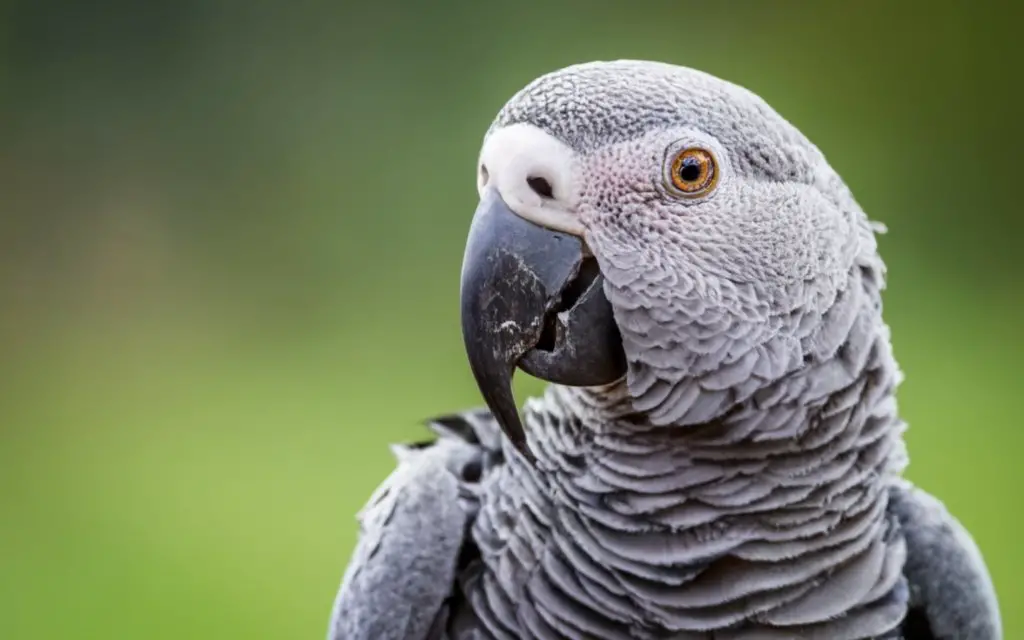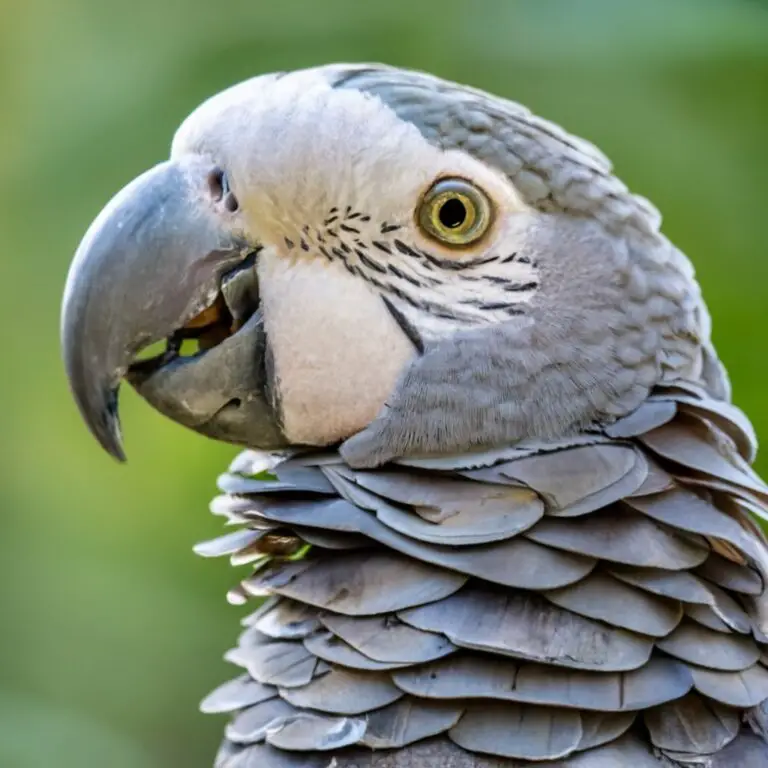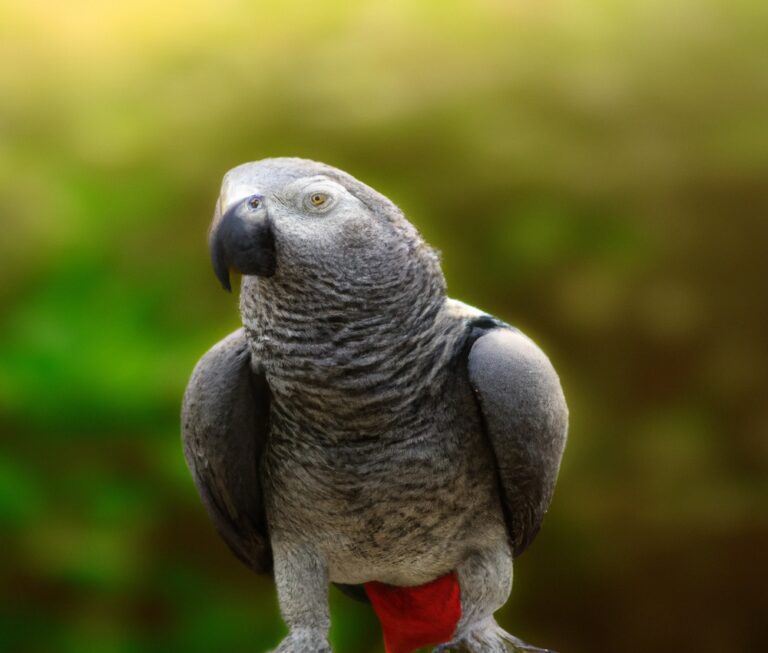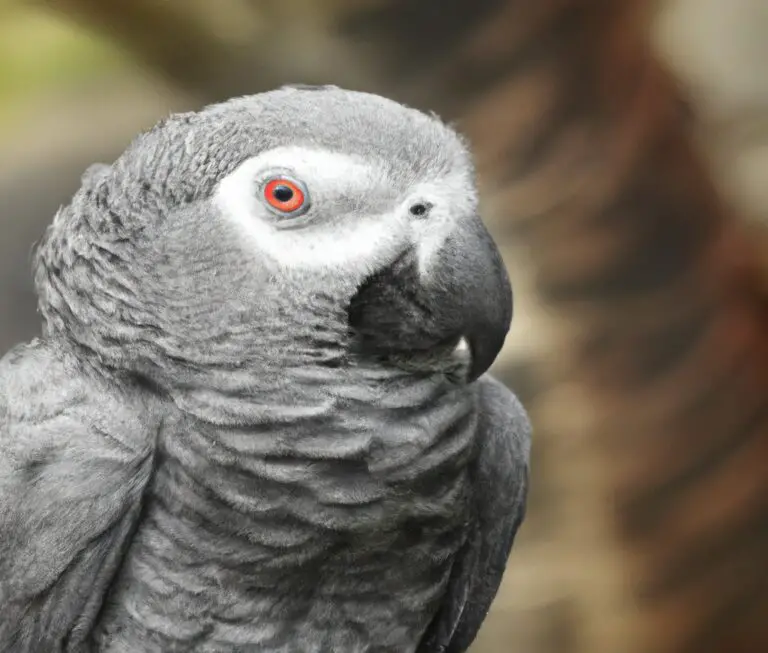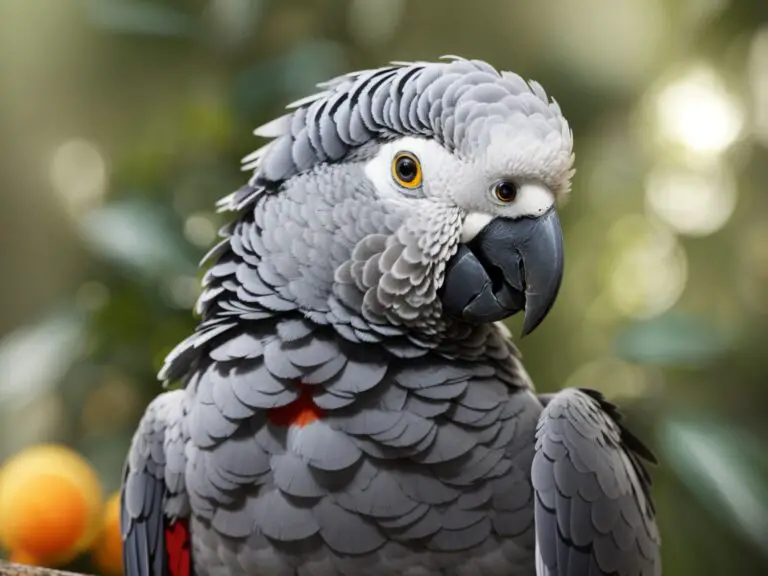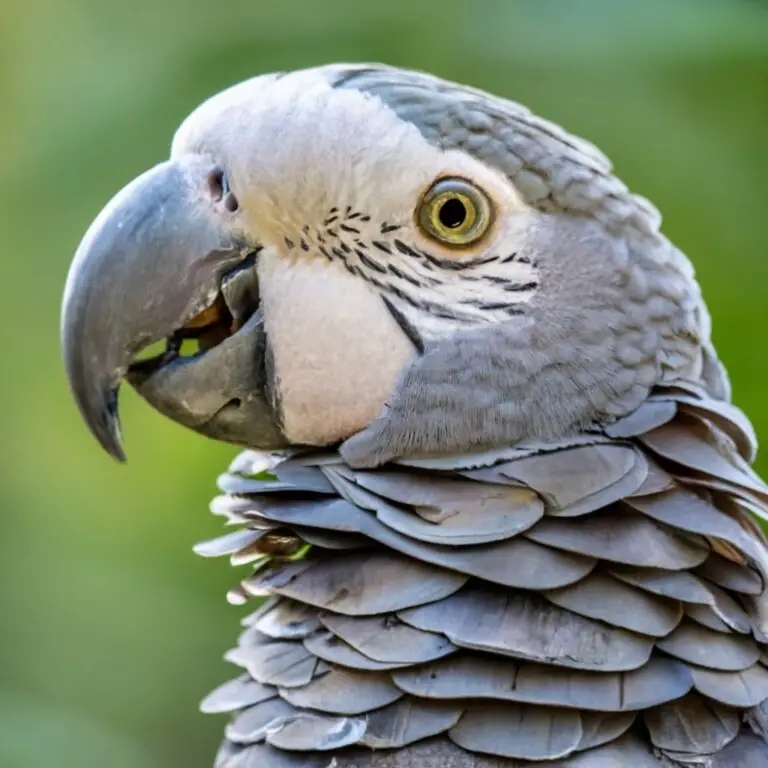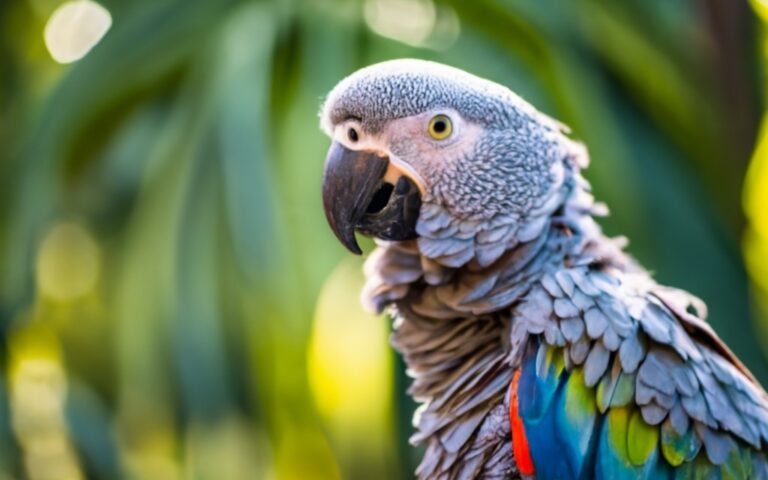Is Dried Eucalyptus Safe For African Grey Parrot?
Key Takeaways:
- Dried eucalyptus may not be safe for African grey parrots due to its potential toxic properties.
- African grey parrots are sensitive to certain chemicals found in dried eucalyptus, leading to health complications.
- It is best to avoid exposing African grey parrots to dried eucalyptus as a precautionary measure.
- Consult with an avian veterinarian for guidance on safe and suitable alternatives for your African grey parrot’s enrichment.
Are you a proud owner of an African grey parrot?
If so, you must constantly be in search of safe and nutritious foods to keep your feathered friend happy and healthy.
But what about dried eucalyptus?
Is it safe to include in your parrot’s diet?
Well, that’s what we’re here to find out! In this article, we’ll explore the potential benefits and risks of dried eucalyptus for African grey parrots.
We’ll also discuss how to safely introduce it into their diet and provide alternative options.
So, let’s dive in and make sure our precious parrots get only the best!
What is dried eucalyptus?
Dried eucalyptus refers to eucalyptus leaves that have been dried and preserved for various purposes.
It is commonly used in crafts, floral arrangements, and aromatherapy.
Definition of dried eucalyptus
Dried eucalyptus refers to eucalyptus leaves that have been dried out, typically for decorative or practical purposes.
The leaves are harvested from eucalyptus trees and then dried, which helps preserve their shape, fragrance, and color.
Dried eucalyptus is often used in floral arrangements, wreaths, and potpourri, as well as in DIY crafts and home décor.
Types of dried eucalyptus commonly available
There are various types of dried eucalyptus commonly available, including:
- Silver Dollar Eucalyptus: Known for its silvery-blue leaves, it adds a beautiful touch to floral arrangements.
- Baby Blue Eucalyptus: This variety has round, bluish-gray leaves that are smaller in size and often used for crafts or wreaths.
- Seeded Eucalyptus: It has clusters of small seed pods along with its leaves, creating an interesting texture in floral designs.
- Gunnii Eucalyptus: With its unique, fragrant blue-gray foliage, it is a popular choice for dried flower arrangements and potpourri.
These are just a few examples, and there are many other types of dried eucalyptus to explore!
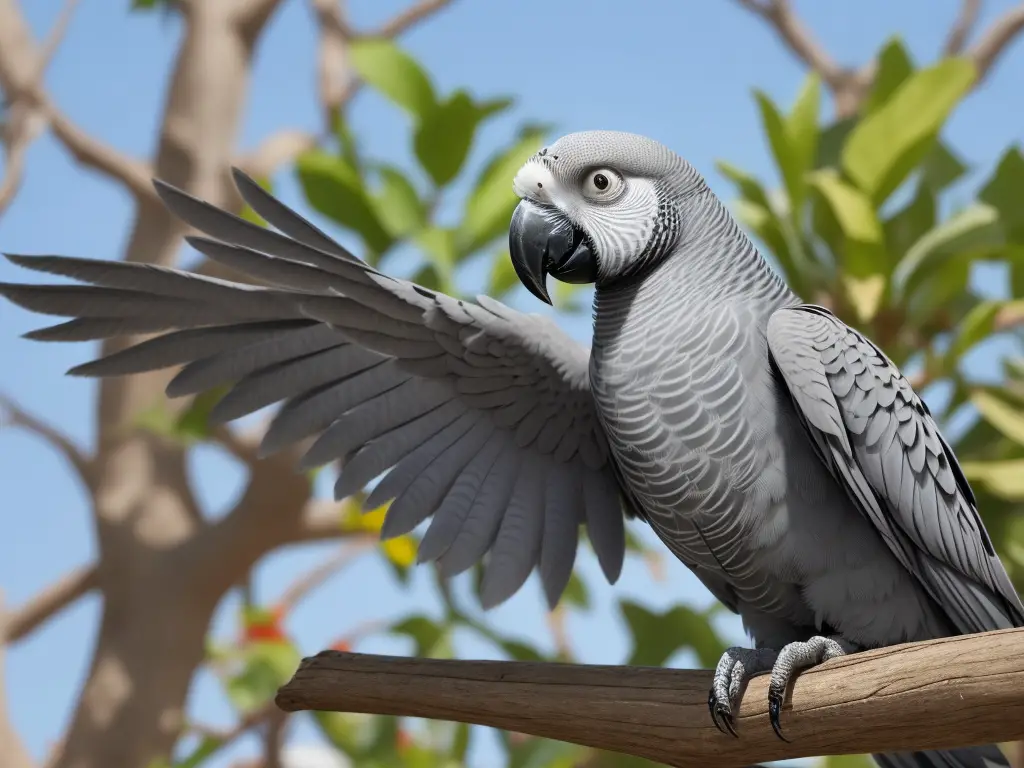
African grey parrots: Introduction and special considerations
African grey parrots are unique birds with specific dietary needs and require a safe and enriched environment to thrive.
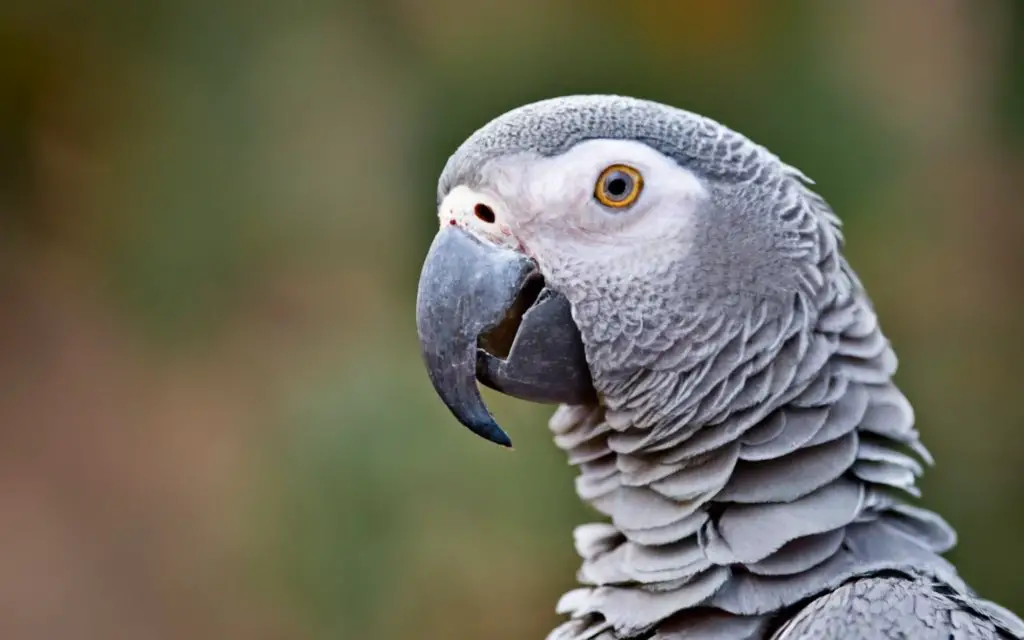
Brief overview of African grey parrots
African grey parrots are highly intelligent and social birds native to the rainforests of West and Central Africa.
They are known for their exceptional talking abilities and can mimic various sounds and voices.
African grey parrots have a lifespan of about 50 to 60 years and require a balanced diet consisting of fruits, vegetables, seeds, and nuts.
They also thrive in a safe and enriched environment with plenty of mental stimulation and social interaction.
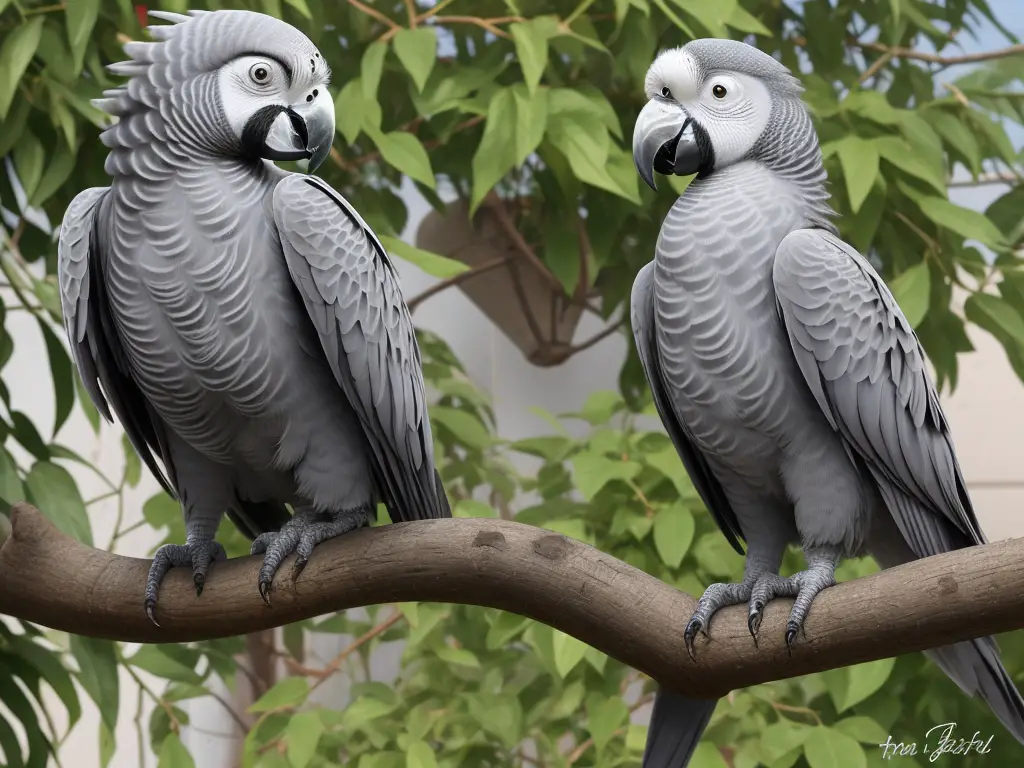
Unique dietary needs of African grey parrots
African grey parrots have specific dietary needs that must be met in order for them to thrive. They require a varied diet consisting of high-quality pellets, fresh fruits and vegetables, and a small amount of seeds and nuts.
It’s important to avoid feeding them certain foods that are toxic to birds, such as avocado, chocolate, and caffeine.
Providing a balanced and nutritious diet is crucial for the health and well-being of African grey parrots.
Importance of providing a safe and enriched environment
Providing a safe and enriched environment for African grey parrots is essential for their overall well-being. It helps prevent accidents and promotes their physical and mental health.
It reduces stress, encourages natural behaviors, and stimulates their intelligence.
A safe and enriched environment also provides them with opportunities for exercise, social interaction, and mental stimulation, which are crucial for their happiness and longevity.
Can African grey parrots consume dried eucalyptus?
African grey parrots should not consume dried eucalyptus due to potential health risks.
Possible benefits and risks of dried eucalyptus for African grey parrots
Dried eucalyptus can provide nutritional benefits for African grey parrots, such as fiber and essential oils. It may also support digestion and respiratory health.
However, certain species of eucalyptus can contain toxic components and cause allergies or respiratory issues.
Consult an avian veterinarian and introduce it gradually to monitor your bird’s health.
Potential benefits of dried eucalyptus for African grey parrots
Dried eucalyptus can potentially provide nutritional benefits for African grey parrots.
It may also support digestion, intestinal health, and respiratory function.
Nutritional content of dried eucalyptus leaves
Dried eucalyptus leaves have a nutritional profile that includes fiber, antioxidants, and essential oils. They are also a good source of vitamins and minerals like vitamin C, vitamin E, calcium, and iron.
These nutrients can support overall health and well-being in African grey parrots.
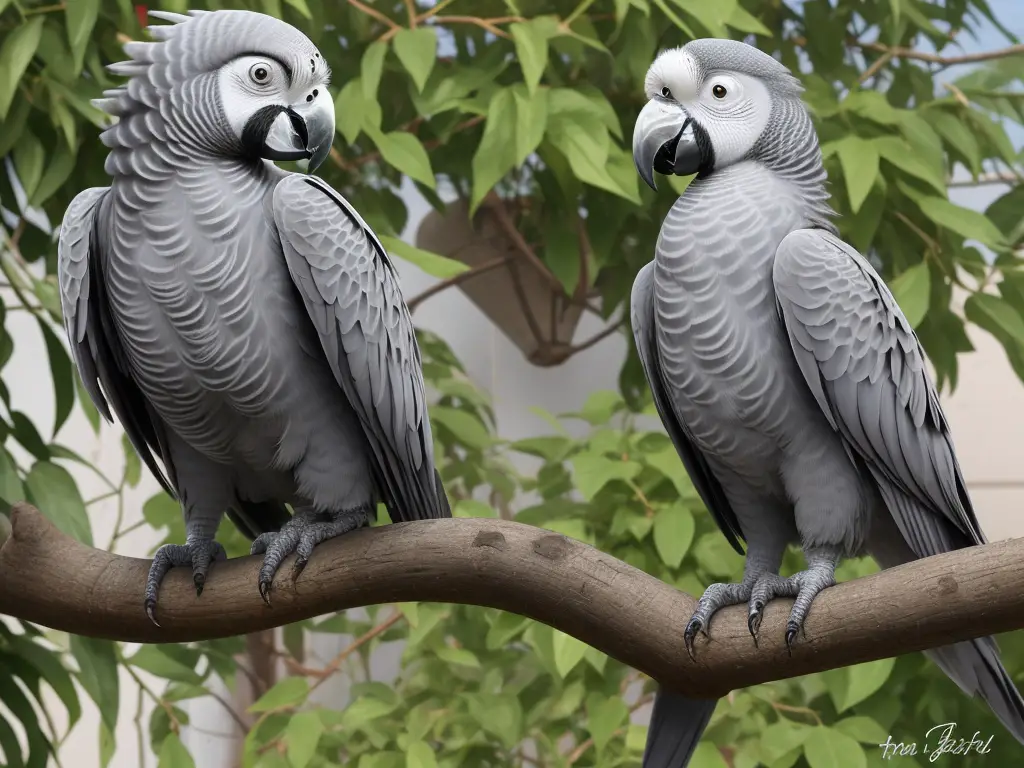
Possible positive effects on digestion and intestinal health
Dried eucalyptus may have positive effects on digestion and intestinal health in African grey parrots.
The fibrous nature of eucalyptus leaves can help stimulate the bird’s digestive system, promoting healthy digestion.
Additionally, eucalyptus contains natural compounds that may have antimicrobial properties, which can support a healthy balance of gut bacteria.
However, it’s important to introduce dried eucalyptus gradually and monitor your parrot’s response to ensure it agrees with their digestive system.
Potential benefits for respiratory health in African grey parrots
Dried eucalyptus can potentially benefit the respiratory health of African grey parrots.
It may help promote healthy lungs and sinus passages, relieve respiratory congestion, and improve breathing.
However, it’s important to introduce it gradually, monitor their response, and ensure they’re not allergic to it.
Risks and precautions of dried eucalyptus for African grey parrots
Be aware of toxic components in certain species of eucalyptus and potential allergic reactions in African grey parrots. Also, consider the possible negative effects on the bird’s respiratory system.
Allergic reactions and sensitivities in African grey parrots
Allergic reactions and sensitivities are possible in African grey parrots when exposed to certain substances. It’s important to monitor their behavior for signs such as itching, sneezing, or difficulty breathing.
Consulting an avian veterinarian is crucial for proper diagnosis and guidance.
Possible negative effects on bird’s respiratory system
Dried eucalyptus can have negative effects on an African grey parrot’s respiratory system.
The strong scent and oils from eucalyptus can irritate their delicate lungs, leading to respiratory issues or difficulty breathing.
It’s important to be cautious and avoid exposing your parrot to this potential risk.
Methods for safely introducing dried eucalyptus to an African grey parrot
Gradual incorporation of small amounts into the diet
To gradually incorporate dried eucalyptus into an African grey parrot’s diet, start by offering tiny amounts and monitor their response.
Increase the quantity gradually over time, keeping an eye on their behavior and health.
Consulting an avian veterinarian is always recommended before introducing any new food.
Other safe and nutritious alternatives for African grey parrots
There are several safe and nutritious alternatives to dried eucalyptus for African grey parrots, including a balanced diet of fruits, vegetables, and seeds, incorporating other herbs and greens, and ensuring proper hydration through fresh water and juicy fruits.
Providing a balanced diet of fruits, vegetables, and seeds
A balanced diet for African grey parrots should include a variety of fruits, vegetables, and seeds. Fruits like apples, bananas, and berries are rich in vitamins and antioxidants.
Vegetables such as carrots, leafy greens, and peas provide essential nutrients.
Seeds like sunflower and pumpkin are a good source of healthy fats and protein.
Incorporating other herbs and greens that are safe for African grey parrots
African grey parrots can safely consume a variety of herbs and greens. Some options include parsley, cilantro, dill, basil, and spinach.
It’s important to thoroughly wash these foods before feeding them to your parrot.
Always introduce new foods gradually and monitor your bird’s reaction.
Ensuring proper hydration through fresh water and juicy fruits
Providing fresh water and juicy fruits is essential for ensuring proper hydration in African grey parrots.
Offer clean, fresh water daily and include hydrating fruits like melons, grapes, and oranges in their diet.
This helps maintain their overall health and hydration levels.
Final Verdict
Dried eucalyptus can be a safe and beneficial addition to an African grey parrot’s diet when introduced properly and in moderation. While it provides nutritional value and potential health benefits, it is important to be aware of potential risks, such as toxic eucalyptus species or allergic reactions.
Consulting with an avian veterinarian and monitoring the bird’s health and behavior are crucial steps before incorporating dried eucalyptus into their diet.
Additionally, it is important to provide a balanced diet with other safe and nutritious alternatives to ensure the bird’s overall health and wellbeing.

